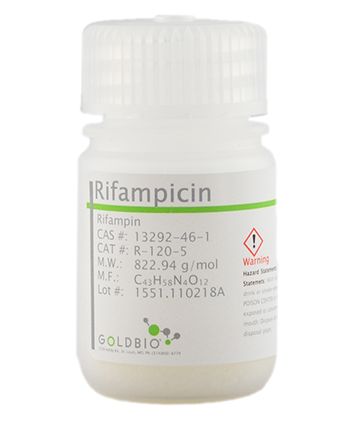Rifampicin, Molecular Biology Grade 5g
Rifampicin is a broad-spectrum antibiotic known for its efficacy against tuberculosis and other infections caused by Mycobacterium species. This semisynthetic antibiotic has also been shown to work against methicillin-resistant Staphylococcus aureus (MRSA), to activate nuclear pregnane x receptor (PXR), and to promote CYP2C-mediated metabolism.
Rifampicin functions by binding the β-subunit of RNA polymerase, inhibiting RNA synthesis. Resistance to this antibiotic develops from mutations on the binding site on RNA polymerase leading to a lower affinity for rifampicin.
Antibiotics are often used in clinical in vitro tests known as antimicrobial susceptibility tests or ASTs to determine their efficacy against certain bacterial species. They are tested against gram-negative and gram-positive bacteria using panels, discs, and MIC strips by medical microbiologists. ASTs decrease the risk of using an antibiotic against bacteria exhibiting resistance to it, and the results are used in clinical settings to determine which antibiotic(s) to prescribe for various infections.

